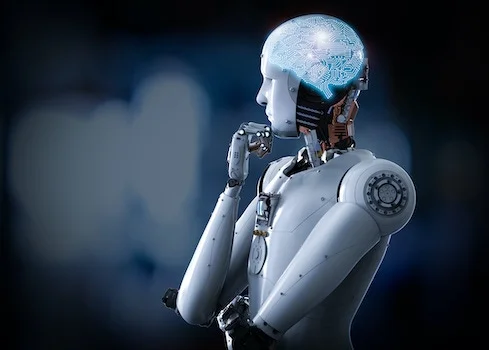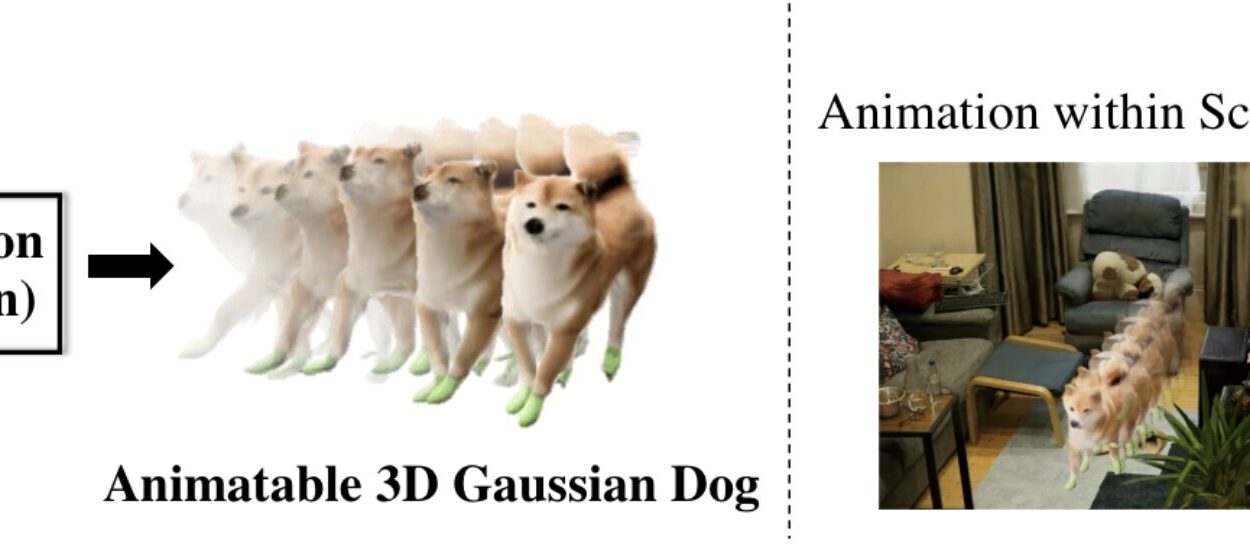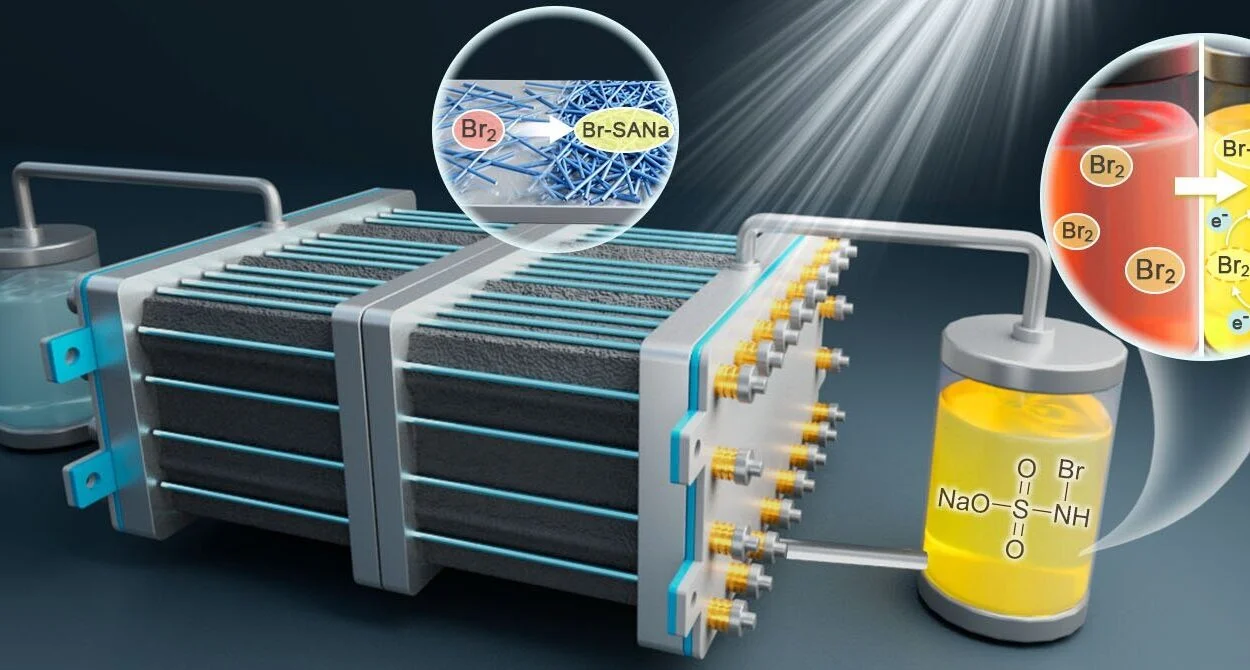The future is coming fast. In 2025, we’ll be living in a world brimming with transformative technologies that will change the way we work, live, and interact with the world around us. Many of these advancements are already in the making, sitting at the crossroads of innovation and practicality. From artificial intelligence (AI) to biotechnology, robotics to renewable energy, these technologies have the potential to radically shift the boundaries of what’s possible.
But what will this future look like? How will these innovations reshape industries, economies, and societies? In this article, we explore ten revolutionary technologies poised to make a profound impact by 2025 and beyond. Some are already showing promise today, while others are still in their nascent stages. Regardless of where they currently stand, these technologies will soon blur the lines between science fiction and reality, ushering us into a new era of progress.
1. Artificial Intelligence and Machine Learning
It’s impossible to talk about the future without mentioning artificial intelligence (AI). In 2025, AI and machine learning will be more sophisticated and integrated into our daily lives than ever before. Already, AI is capable of performing tasks that were once thought to be uniquely human: recognizing images, understanding speech, and even composing music.
However, by 2025, AI will have evolved into something far more powerful. One of the most significant changes will be the rise of general AI, which will be capable of performing a wide variety of tasks across different domains with minimal human intervention. This marks a move beyond specialized AI systems like Siri or Google Assistant to systems that can think and learn in more generalized ways.
For example, AI will transform industries like healthcare, where it will be able to diagnose diseases and recommend treatment plans based on vast datasets of medical information. AI will also become a key player in automating repetitive tasks, driving efficiencies in manufacturing, logistics, and even agriculture.
Moreover, AI will help us solve some of the most pressing global challenges. From predicting climate patterns to optimizing energy usage, AI will be at the forefront of efforts to tackle issues like climate change and food security. By 2025, we’ll begin to witness AI-driven solutions that we couldn’t even have imagined a few years ago.
2. Quantum Computing
If AI is the brain of the future, quantum computing is its potential powerhouse. By 2025, quantum computers will have made significant strides, moving us closer to unlocking their true potential. Quantum computing harnesses the principles of quantum mechanics—such as superposition and entanglement—to process information in ways that classical computers simply cannot.
In essence, quantum computers can perform complex calculations at unprecedented speeds. This has profound implications for industries ranging from cryptography to pharmaceuticals. For example, quantum computing could revolutionize drug discovery by simulating molecular interactions in ways that are impossible for classical computers to handle. This could lead to the development of new treatments for diseases like cancer or Alzheimer’s, potentially saving millions of lives.
In cybersecurity, quantum computing will render current encryption methods obsolete. While this may sound alarming, it will also pave the way for the development of quantum-resistant encryption, ensuring that our data remains secure even in a quantum-powered world.
By 2025, quantum computers will still be in the experimental stage, but they’ll have moved far beyond the lab, finding real-world applications in fields like logistics, finance, and artificial intelligence. The advent of quantum computing could mark a new chapter in human progress, allowing us to solve problems that were previously unsolvable.
3. Autonomous Vehicles
The dream of self-driving cars is already becoming a reality, but by 2025, we’ll see these vehicles fully integrated into our daily lives. The rise of autonomous vehicles will redefine transportation, making it safer, more efficient, and less dependent on human drivers.
Autonomous vehicles will change the way we think about cities and infrastructure. As self-driving cars take over the roads, we’ll see a reduction in traffic accidents caused by human error, leading to a safer driving experience for everyone. Traffic flow will improve, with vehicles communicating with each other to optimize routes and reduce congestion.
In addition to personal transportation, autonomous trucks will revolutionize the logistics industry. These self-driving trucks will be able to operate 24/7, dramatically reducing delivery times and costs. This will be particularly impactful for industries like e-commerce, where fast, efficient shipping is essential to meet customer expectations.
Public transportation will also be transformed by autonomous technology. Self-driving buses, trains, and even drones will provide a more convenient, flexible, and sustainable alternative to traditional mass transit systems. By 2025, cities around the world will be implementing autonomous vehicles to improve urban mobility, reduce pollution, and create more livable environments.
4. Biotechnology and CRISPR
Biotechnology is on the cusp of a revolution, with advances in genetic engineering, regenerative medicine, and personalized healthcare poised to change the world in profound ways. One of the most exciting developments is the CRISPR-Cas9 gene-editing technology, which enables scientists to modify DNA with unparalleled precision.
By 2025, CRISPR technology will have matured, making it possible to cure genetic diseases that were once thought to be untreatable. For example, sickle cell anemia and cystic fibrosis could become things of the past as gene therapies allow for targeted treatments that correct genetic mutations at the source.
CRISPR will also be a game-changer in agriculture, enabling scientists to create crops that are more resistant to pests, diseases, and environmental stress. These genetically modified crops could help feed a growing global population while reducing the need for harmful pesticides and fertilizers.
Beyond genetic editing, biotechnology will enable breakthroughs in regenerative medicine, such as growing organs from a patient’s own cells. This could eliminate the need for organ transplants and solve the problem of organ shortages. In the coming years, stem cell therapies and tissue regeneration will provide treatments for conditions like heart disease, spinal cord injuries, and even aging.
By 2025, we will witness the first widespread applications of CRISPR and other biotechnological innovations, changing the landscape of medicine and agriculture forever.
5. Renewable Energy and Energy Storage
As the world faces the growing threat of climate change, the shift toward renewable energy sources will accelerate. By 2025, we’ll see significant progress in solar, wind, and hydropower technologies, making them the dominant sources of energy worldwide.
Solar energy will continue to improve in efficiency and affordability, with innovations like solar panels made from perovskite materials leading to cheaper, more efficient ways to harness the sun’s power. These next-generation solar cells could reduce the cost of electricity, making solar energy accessible to more people around the world.
Wind energy will also see massive advancements, with larger, more powerful turbines capable of generating more electricity with less environmental impact. Offshore wind farms will play a critical role in providing clean energy to coastal cities, while onshore wind farms will become more efficient, contributing to the global energy mix.
The challenge of renewable energy, however, lies in storage. Solar and wind power are intermittent, dependent on weather conditions, making it difficult to rely on them for consistent energy supply. By 2025, breakthroughs in energy storage—such as solid-state batteries and grid-scale energy storage—will allow us to store excess energy when production is high and release it when demand peaks.
With advancements in renewable energy and energy storage, we’ll see a dramatic reduction in our dependence on fossil fuels, leading to a cleaner, more sustainable energy future. The move toward renewable energy will not only help mitigate climate change but also create new industries, jobs, and economic opportunities around the world.
6. 3D Printing and Additive Manufacturing
3D printing has already begun to revolutionize manufacturing, but by 2025, it will have evolved into a mainstream technology capable of producing everything from consumer products to critical medical devices.
Additive manufacturing—the process of building objects layer by layer—will enable highly customized production on demand. This will disrupt traditional supply chains by allowing products to be printed locally rather than shipped globally, reducing transportation costs and emissions.
In the healthcare sector, 3D printing will be used to create customized implants, prosthetics, and even organs. This will enable more personalized treatments for patients, improving outcomes and reducing the need for expensive, mass-produced medical devices.
In construction, 3D printing will allow for the creation of buildings and infrastructure more efficiently and at a fraction of the cost of traditional methods. Entire homes could be printed in a matter of days, using sustainable materials and reducing waste.
As 3D printing technology continues to improve, the possibilities are virtually limitless. By 2025, it will be an essential tool in industries ranging from aerospace to fashion, and from healthcare to architecture, opening up new avenues for innovation and sustainability.
7. Virtual and Augmented Reality
Virtual reality (VR) and augmented reality (AR) technologies will take significant leaps forward by 2025, transforming entertainment, education, healthcare, and even the way we interact with the world.
In entertainment, VR will offer fully immersive experiences, allowing users to step into virtual worlds where they can interact with digital environments in ways never before possible. Video games, movies, and social media platforms will be transformed as users explore new forms of digital interaction.
AR, on the other hand, will seamlessly blend the physical and digital worlds, allowing users to overlay digital information onto their real-world surroundings. This has vast potential for industries like retail, where customers can virtually try on clothes or visualize furniture in their homes before purchasing. AR will also revolutionize education, providing students with interactive learning experiences and enhancing training programs for professionals in fields like medicine and engineering.
In healthcare, VR will be used for therapy, helping patients with mental health conditions such as PTSD or anxiety by immersing them in controlled virtual environments. Surgeons will also use VR simulations to practice complex procedures before performing them in real life.
By 2025, VR and AR will be ubiquitous technologies, providing new opportunities for work, play, and learning in ways that we can’t yet fully comprehend.
8. The Internet of Things (IoT)
By 2025, the Internet of Things (IoT) will have matured, creating a world where everything is connected. IoT refers to the network of physical devices embedded with sensors, software, and other technologies that allow them to connect and exchange data.
In our homes, IoT will enable smart devices to communicate with one another. Your refrigerator will alert you when you’re low on groceries, while your thermostat will adjust the temperature based on your daily routine. IoT will also make cities smarter, with sensors monitoring everything from traffic patterns to air quality, helping governments make data-driven decisions to improve urban life.
In the healthcare sector, IoT devices will enable continuous patient monitoring, allowing doctors to track vital signs remotely and intervene before serious health issues arise. Wearables like smartwatches will become even more advanced, capable of monitoring everything from heart rate to blood glucose levels, offering personalized health insights.
By 2025, IoT will be deeply integrated into our daily lives, helping us save time, increase efficiency, and make smarter decisions.
9. Space Exploration and Colonization
Humanity’s push into space will take a giant leap forward by 2025, thanks to the growing capabilities of private companies and national space agencies. Space tourism will become a reality for the wealthy, while space exploration missions to the Moon and Mars will continue to expand our presence beyond Earth.
The Artemis program, led by NASA, aims to land the first woman and the next man on the Moon by 2024, followed by the establishment of a sustainable human presence there. Meanwhile, private companies like SpaceX and Blue Origin are developing reusable spacecraft that will make space travel more cost-effective and accessible.
By 2025, these advancements will pave the way for the first human missions to Mars, bringing us closer to the dream of colonizing other planets. While this may seem like a distant goal, the technological advancements made in the pursuit of space exploration will have far-reaching implications for life on Earth, from energy generation to materials science and beyond.
10. Advanced Robotics
Robots are no longer just the stuff of science fiction. In 2025, robots will be an integral part of industries ranging from healthcare to manufacturing, and even in our homes. Robots will perform tasks that are too dangerous, repetitive, or precise for humans to handle.
In healthcare, robots will assist with surgeries, provide rehabilitation services, and even deliver medication to patients. Robots will also be used to care for the elderly, helping them with daily tasks like cleaning, cooking, and mobility.
In manufacturing, robots will become more autonomous and capable of performing complex tasks with little human oversight. This will make factories more efficient, while also creating new opportunities for customization and flexibility in production.
Robots will also start to play a role in the home, performing tasks like cleaning, cooking, and even offering companionship. As robots become smarter and more capable, their presence will be felt in every corner of our lives, changing the way we interact with machines and each other.
Conclusion
The technologies that are emerging in the next few years will radically reshape the way we live, work, and relate to one another. From AI to biotechnology, quantum computing to autonomous vehicles, the possibilities are limitless. These revolutionary technologies will solve some of the world’s most pressing problems, improve our quality of life, and open up new frontiers for exploration and discovery.
While many of these advancements are still in development, they are on track to make their mark by 2025. The future is closer than we think, and the next few years will be a transformative period in human history.






